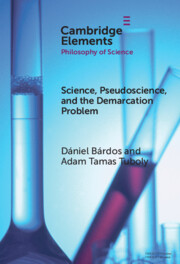Refine search
Actions for selected content:
1 results

Science, Pseudoscience, and the Demarcation Problem
-
- Published online:
- 06 March 2025
- Print publication:
- 06 March 2025
-
- Element
- Export citation
